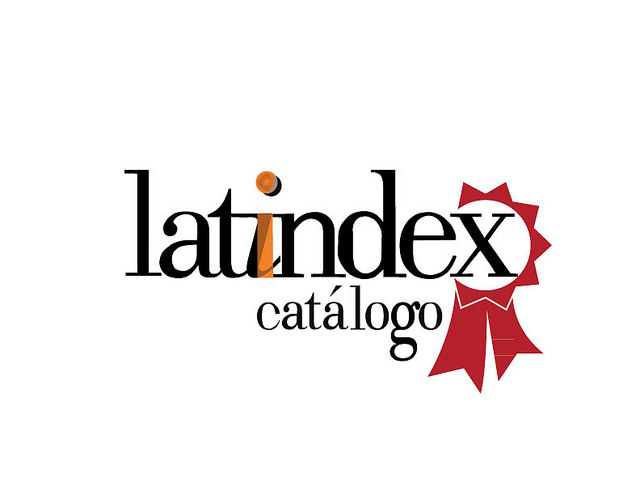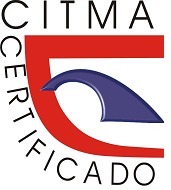Transformación digital empresarial: modelos y mecanismos para su adopción
Palabras clave:
transformación digital empresarial, modelos de gestión, modelos de negocioResumen
La introducción de nuevas tecnologías es un factor clave para mejorar la productividad de las empresas y de la economía como un todo. La transformación digital empresarial está replanteando los modelos de gestión, de negocios y de producción para facilitar la innovación centrada en el usuario y en colaboración con los ecosistemas digitales organizacionales . En este artículo se hace un bosquejo sobre estos nuevos modelos, sus etapas, principios y características, y se destaca el rol de los espacios unificados e infraestructuras de datos en la digitalización de extremo a extremo de la cadena de valor empresarial. Se mencionan también algunos mecanismos que facilitan la conducción del proceso de la transformación digital empresarial.
Citas
Andriushchenko, K., Rudyk, V., Riabchenko, O., Kachynska, M., Marynenko, N., Shergina, L., Kovtun, V., Tepliuk, M., Zhemba, A., & Kuchai, O. (2019). Processes of managing information infrastructure of a digital enterprise in the framework of the «Industry 4.0» concept. Eastern-European Journal of Enterprise Technologies, 1(3 (97), 60–72. https://doi.org/10.15587/1729-4061.2019.157765.
Bokolo, A. J. (2020). Applying Enterprise Architecture for Digital Transformation of Electro Mobility towards Sustainable Transportation.
CEPAL. (2021). Tecnologías digitales para un nuevo futuro (LC/TS.2021/43), Santiago.
Delgado-Fernández, T. (2020). Taxonomía de transformación digital. Revista Cubana de Transformación Digital, 1(1), 04-23.
Delgado, T. (2018). Industria 4.0: Marcos de referencia y factores de alistamiento en el contexto cubano. Memorias 19 Convención Científica de Ingeniería y Arquitectura. Palacio de Convenciones de La Habana.
Deloitte (2015). Industry 4.0. Challenges and solutions for the digital transformation and use of exponential technologies (pp. 1–30). New york: Deloitte.
Foerster-Metz, U. S., Marquardt, K., Golowko, N., Kompalla, A., & Hell, C. (2018). Digital transformation and its implications on organizational behavior. Journal of EU Research in Business, 2018(S 3).
Gurieva, L. K., Borodin, A. I., & Berkaeva, A. K. (2019). Management model transformation in the digital economy. In 1st International Scientific Conference" Modern Management Trends and the Digital Economy: from Regional Development to Global Economic Growth"(MTDE 2019) (pp. 383-387). Atlantis Press.
Herzog, R., Jacoby, M., & Podnar, I. (2016). Semantic interoperability in IoT-based automation infrastructures. At - Automatisierungstechnik, 64(9). doi:10.1515/auto-2016-0067.
Ibarra, D., Ganzarain, J., & Igartua, J. I. (2018). Business model innovation through Industry 4.0: A review. Procedia Manufacturing, 22, 4-10.
International Electrotechnical Commission. (2017). IEC PAS 63088:2017. Smart Manufacturing – Reference Architecture Model Industry 4.0 (RAMI4.0), IEC.
Kotusev, S., y Kurnia, S. (2020). The theoretical basis of enterprise architecture: A critical review and taxonomy of relevant theories. Journal of Information Technology, 0268396220977873.
O'Brien, C., (2018). Enterprise architecture management: insights in the digital context. White Paper. Innovation Value Institute, Maynooth, 1-11.
Roth, A. (2016). Einführung und Umsetzung von Industrie 4.0, Springer Gabler.
Rüßmann, M., Lorenz, M., Gerbert, P., Waldner, M., Justus, J., Engel, P., & Harnisch, M. (2015). Industry 4.0. The Future of Productivity and Growth in Manufacturing (pp. 1–5). Boston Consulting.
Savastano, M., Amendola, C., & D’Ascenzo, F. (2018). How Digital Transformation is Reshaping the Manufacturing Industry Value Chain: The New Digital Manufacturing Ecosystem Applied to a Case Study from the Food Industry. Network, Smart and Open, 127–142. doi:10.1007/978-3-319-62636-9_9.
Teece, D. J., & Linden, G. (2017). Business models, value capture, and the digital enterprise. Journal of organization design, 6(1), 1-14.
Vagadia B. (2020) Enterprise Digital Transformation. In: Digital Disruption. Future of Business and Finance. Springer, Cham. https://doi.org/10.1007/978-3-030-54494-2_9
Descargas
Publicado
Cómo citar
Número
Sección
Licencia
Derechos de autor 2021 Tatiana Delgado Fernández

Esta obra está bajo una licencia internacional Creative Commons Atribución-NoComercial 4.0.













